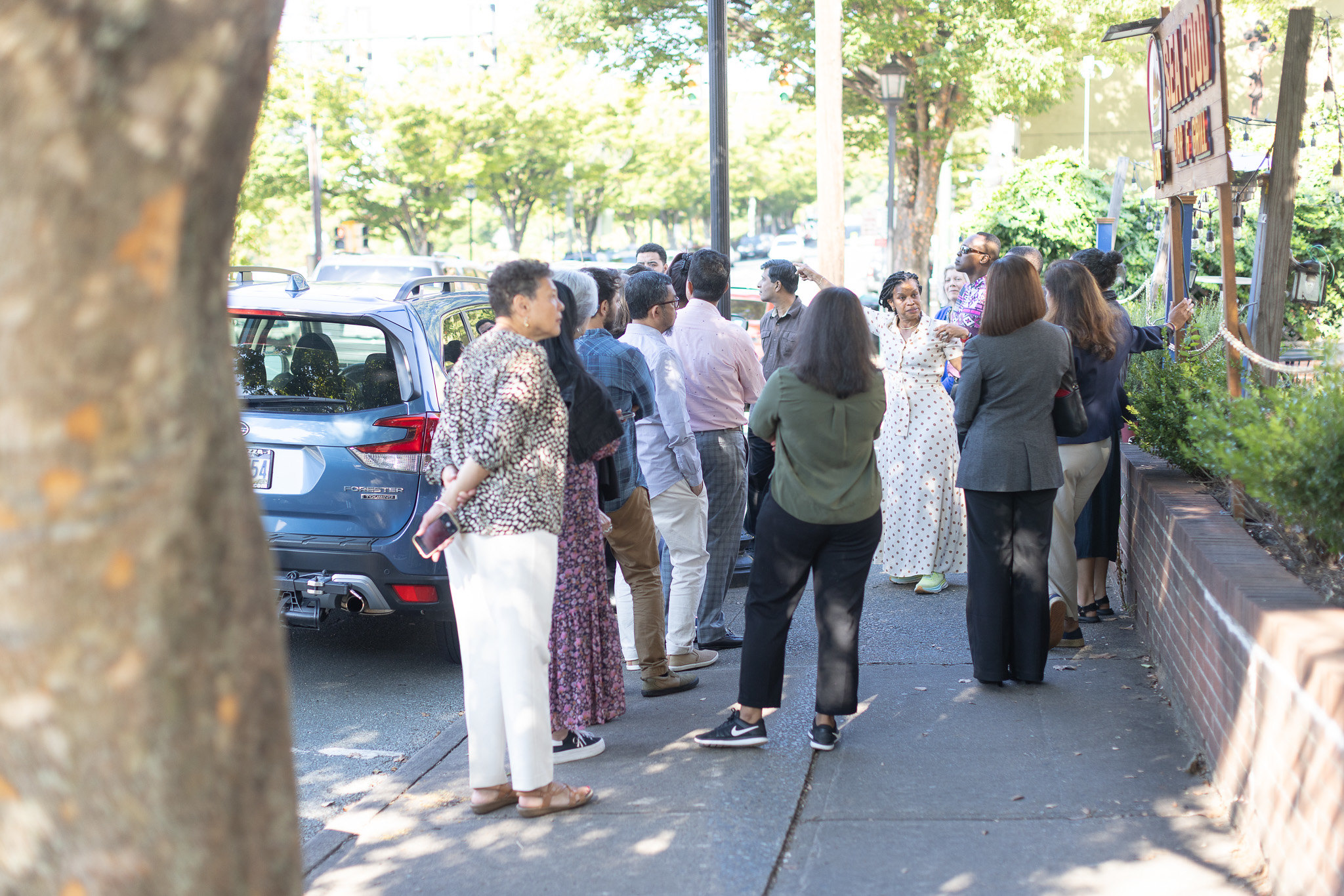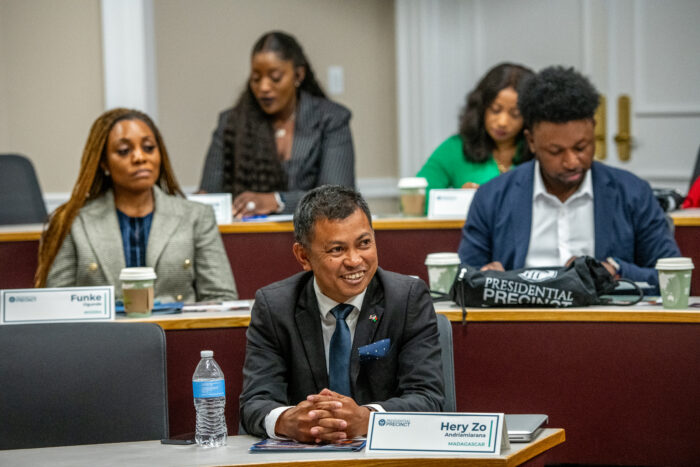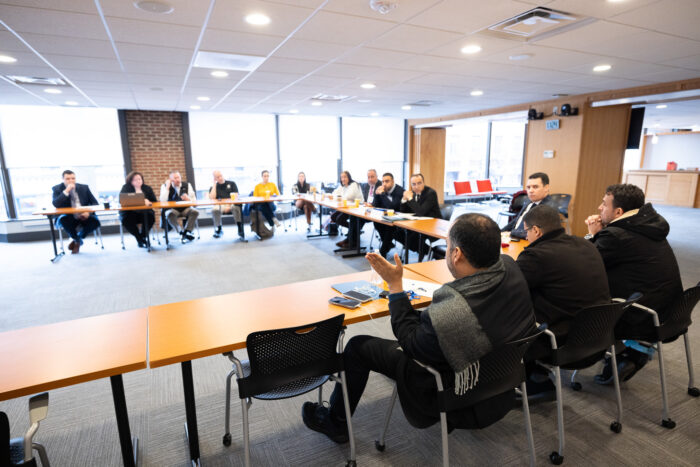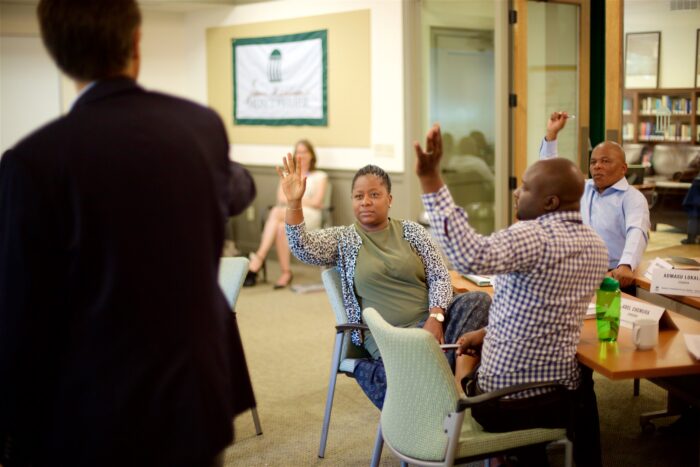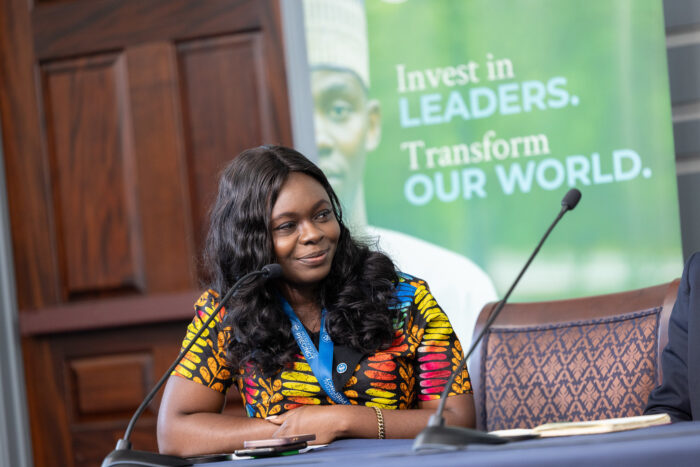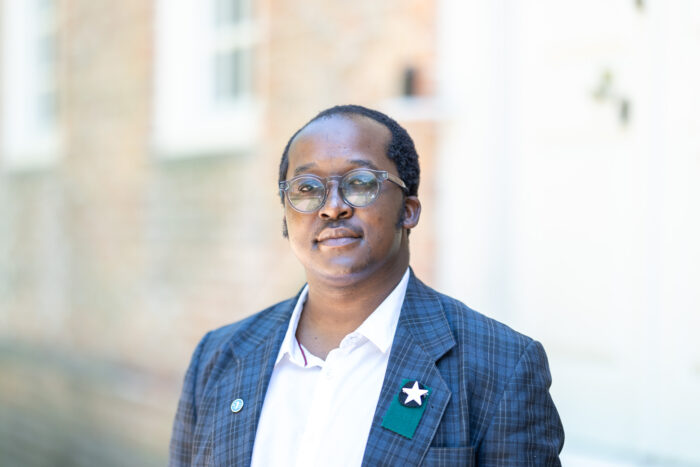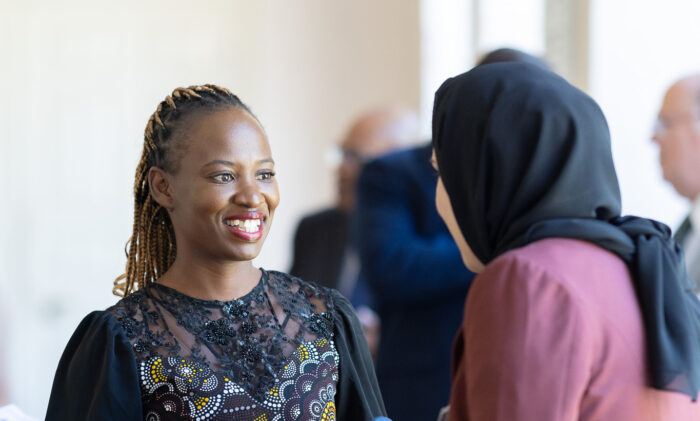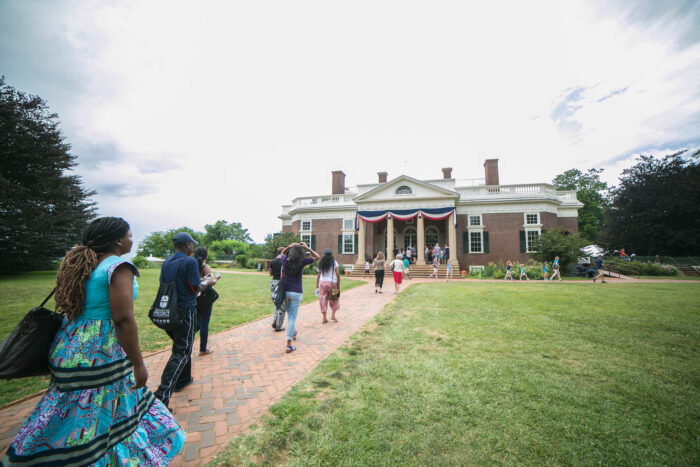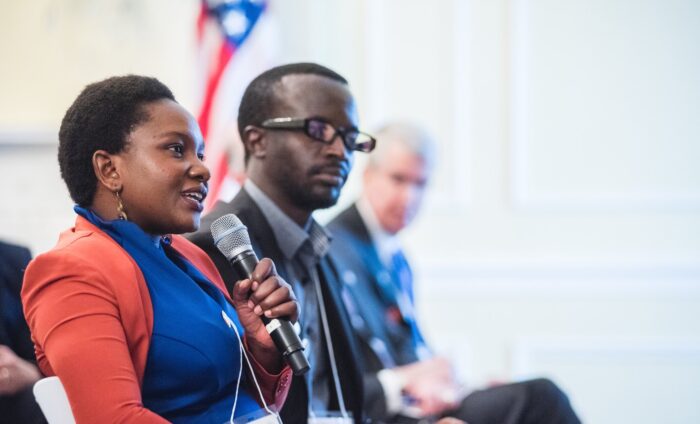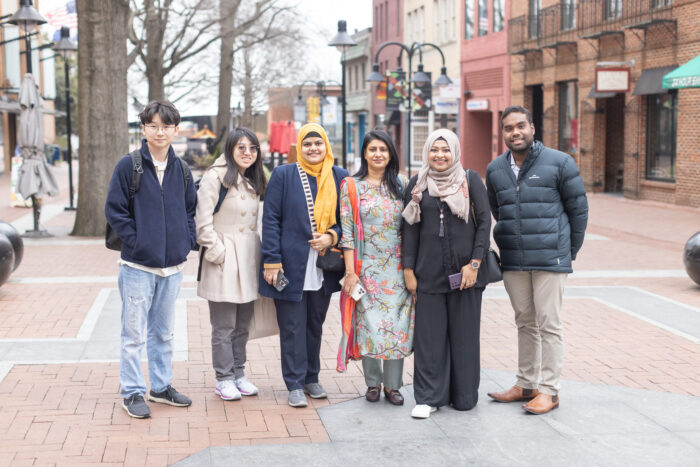Program Highlight: Dismantling Racial and Social Injustice
In mid-September, our team welcomed 16 international visitors representing 15 countries – from Australia to Romania – for a seven-day International Visitor Leadership Program (IVLP), titled “The Problem We All Live With: Dismantling Racial and Social Injustice”.
Specific program objectives included examining the historical roots of racial inequity; exploring best practices in providing equal access to education, economic opportunity, and healthcare; analyzing civil rights advocacy strategies and how they successfully work with media, social influencers, and government; and reviewing actions taken within communities to address centuries of racial and social injustice.
Community voices provided widespread case studies and commentary around these objectives – some reflecting upon well-recorded histories and others their own personal experience as a Charlottesville resident. Below we have summarized just a few of these program engagements.
The Sound Justice Lab
The Sound Justice Lab is “a space for exploring creative and everyday responses to legal failures and erasures. We use research, advocacy, and creative practice to amplify and support the voices often omitted by formal legal processes.”
Co-Directors Bonnie Gordon and Anne Coughlin organized a thoughtful and deeply personal engagement for the group. WTJU General Manager Nathan Moore, practitioner in residence Molly Conger, and Charlottesville Tomorrow CEO Angilee Shaw demonstrated how local, independent media give front row space and agency to those most impacted by policies and laws and empower storytellers who bring diverse perspectives to listeners and the community at large.
Participants discussed legal and community-based strategies to combat white supremacists and to bring perpetrators and organizers of the Unite the Right Rally to justice. Nathan told stories of aiding the victims and broadcasting live from the scene. Molly immersed the group in her journey from bystander to court transcriber, podcaster, and anti-fascist activist.
Christopher Kavanaugh, U.S. Attorney for the Western District of Virginia, led a forthright discussion of missed opportunities and unintended consequences as well as what was done well in the investigation.
The Sound Justice Lab’s collective effort to invite and answer pointed questions about the U.S. system of justice achieved the purpose and best outcomes of people-to-people diplomacy.
Memorial to Enslaved Laborers at the University of Virginia
Jessica Harris, a community research program manager with UVA’s Equity Center and president of Descendants of Enslaved Communities at UVA, shared her knowledge of the design thinking and symbology behind the Memorial to Enslaved Laborers.
The group observed how the Memorial’s design alludes to hush harbors that provided spiritual solace and cleansing for enslaved people making their way out of bondage and toward freedom. Jessica led the group through the emotionally moving experience of dipping their hands in the Memorial’s flowing water, as a medium to connect and reflect on the life of those whose names are etched in memory.
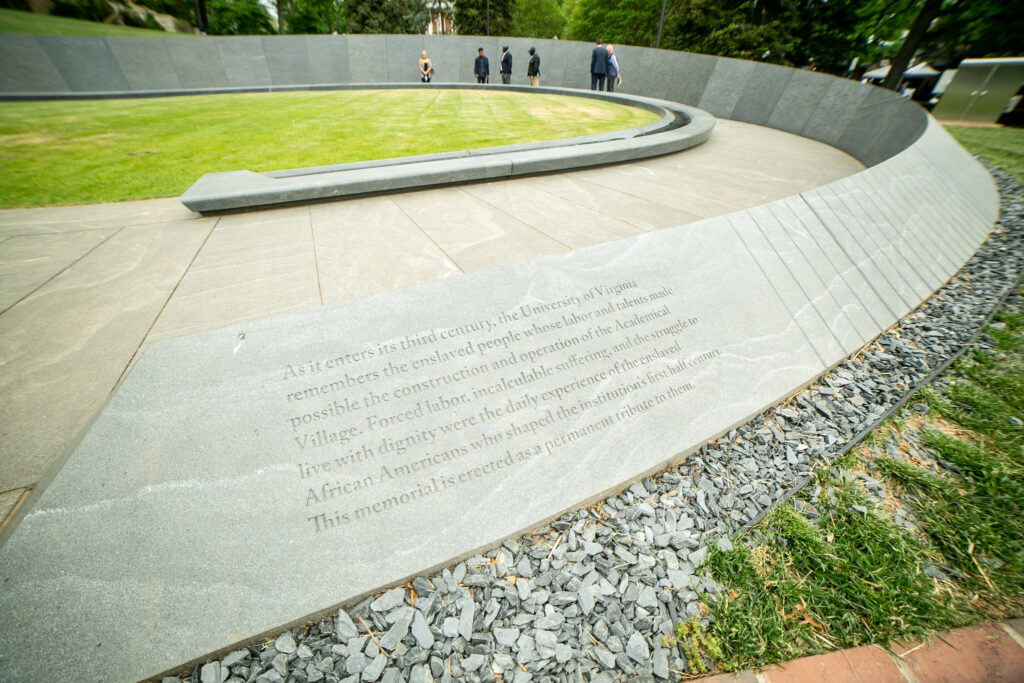
The Memorial remained a touchpoint for the group’s Charlottesville program, proof that institutions and the communities they serve can move toward the future without minimizing the past.
Jefferson School African American Heritage Center
Dr. Andrea Douglas, Executive Director of the Jefferson School African American Heritage Center, led an energetic and deeply personal engagement, joined by Kevin Gaines, Julian Bond Professor of Civil Rights and Social Justice at UVA, and Rev. Brenda Brown-Grooms, Pastor of New Beginnings Christian Community and member of the Charlottesville Clergy Collective.
This conversation helped the group better appreciate the fragility of the civil rights gains achieved in the U.S. since the Jim Crow era, and also conveyed optimism that reconciliation remains possible. The visitors gained a deeper understanding of how mobilization around monuments and social movements such as Black Lives Matter represent a test of democracy in the United States.
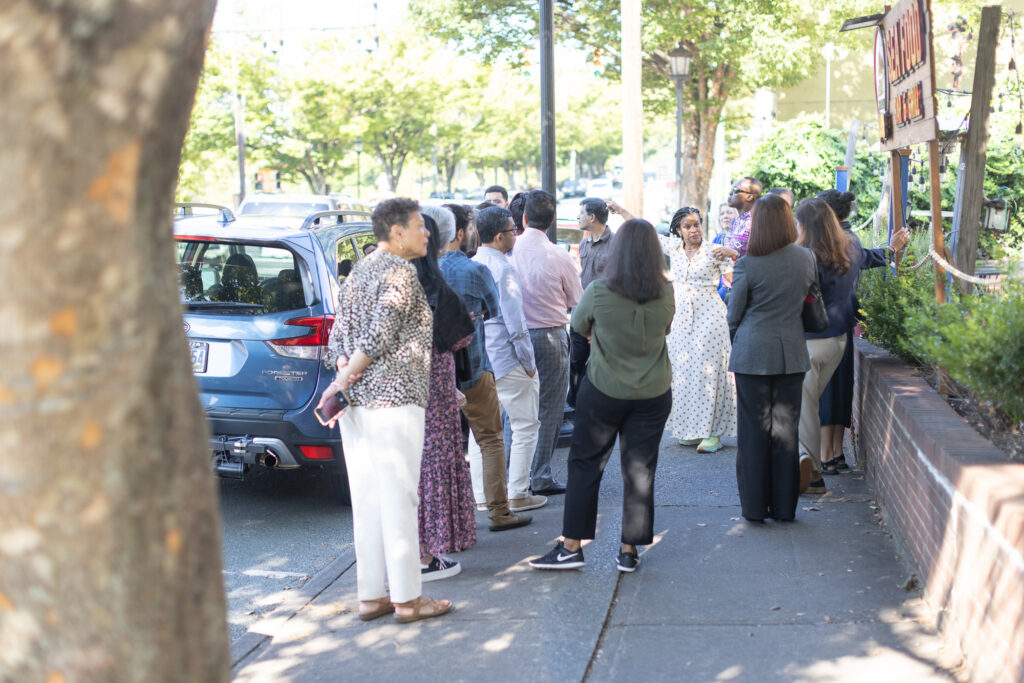
Andrea’s tour of the Jefferson School and surrounding Starr Hill neighborhood enriched the group’s conversations about affordable housing and equity — how individual decisions, economic interests, and public policy have created difficulties or even displaced families who have lived in the neighborhood for generations. They came away with clear ideas of how they can create deliberative and active spaces in their home countries, where community members can come together on even ground, look each other in the eye, and talk openly about their grievances, fears, beliefs, and hopes for the future.
James Monroe’s Highland
Maria DiBenigno, Mellon Postdoctoral Research Fellow at James Monroe’s Highland, organized a full day program featuring a conversation with Highland Council of Descendant Advisors Jennifer Saylor Stacy and Rakeem Walker and presentation on regional community justice work from Justin Reid, a cultural organizer and public historian who specializes in rural cultural sustainability.
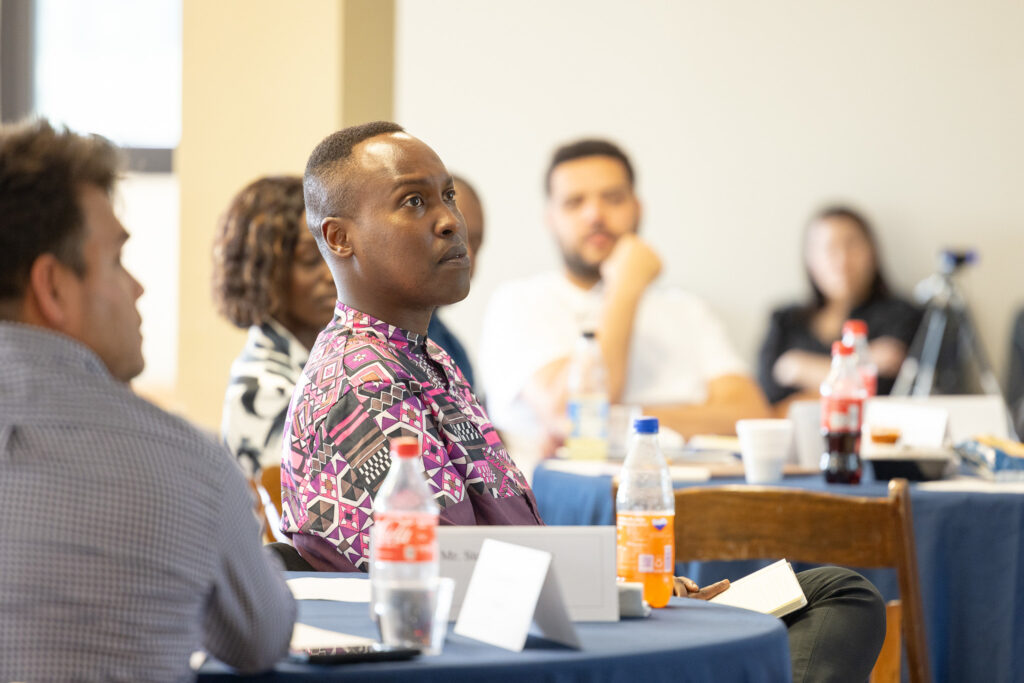
From Maria, Jennifer, and Rakeem, the group learned how to connect oral history to a physical space and work the land in concert with historical research and storytelling, offering a rural counterpoint to these same themes that Dr. Douglas raised in the Jefferson School’s urban setting.
The group came away with clear ideas on how to design and implement oral history projects that create a sense of belonging and an affirming awareness of one’s own group identity – and greater awareness of the diversity of experience and perspectives within that group. They left Highland better able to generate a genuine sense of security within and across communities in their home countries – a precursor to catalyzing social movements.
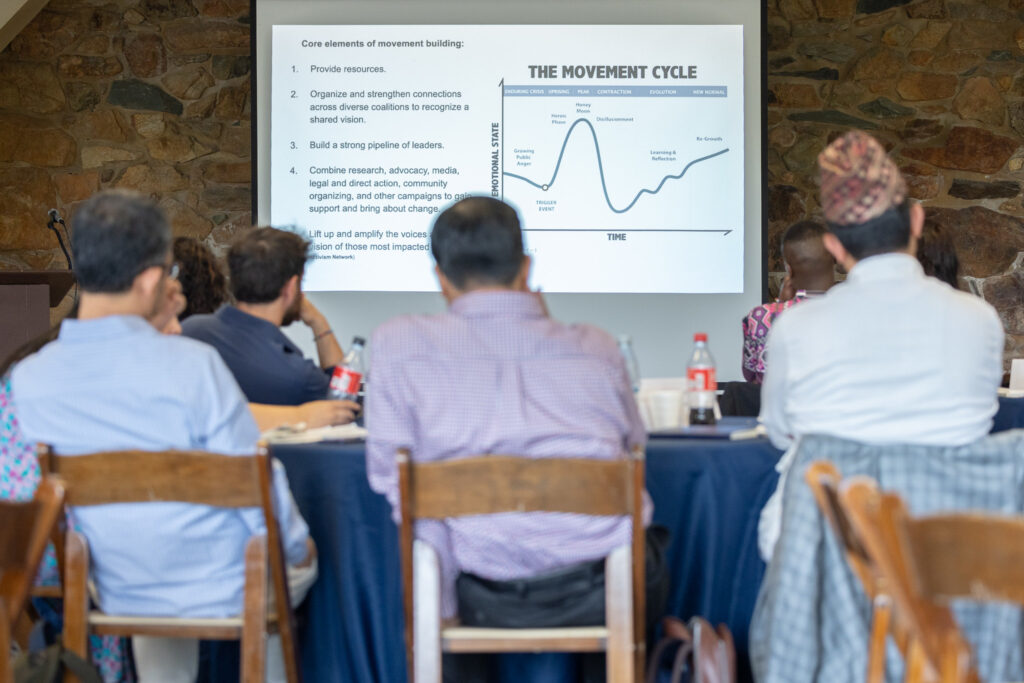
From Justin, the group learned important lessons in resilience in leading social movements. Justin’s presentation encouraged the group to view movements as a cycle and to not become disillusioned when the movement’s energy naturally begins to wane or when a counter movement arises.
Kluge-Ruhe Aboriginal Art Museum
The group visited the Kluge-Ruhe Aboriginal Art Collection of the University of Virginia. Museum Director Margo Smith AM and Jamieson Daley, Manager of Education and Programs, led a tour of the collection. Their introduction to Performing Country, an exhibition highlighting never-before-seen works from the museum’s permanent collection, sparked introspective conversations about the stories we tell ourselves and others — about who we and where we come from, as individuals and a people, and our relationship to place and planet.
The collection curated by Tony Albert also spurred group members’ thinking on how they could use the arts as a medium for peaceful protest and storytelling.
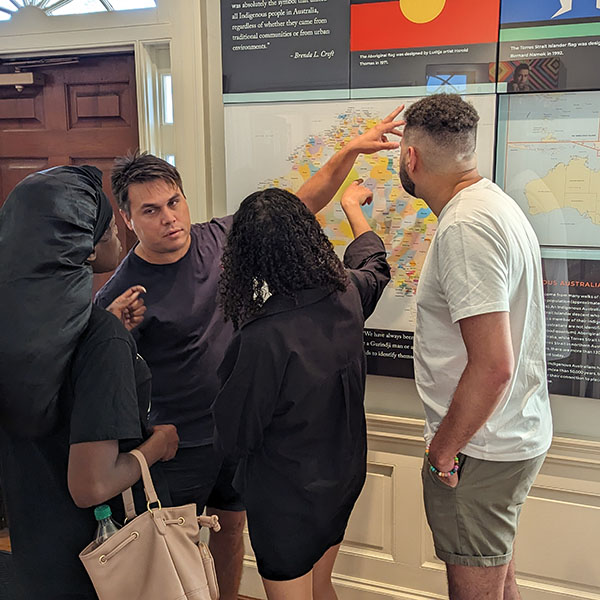
—
We extend sincere gratitude to the many other partners who supported this program, including the Department of Public Health Sciences at UVA, where participants discussed research on health disparities in African American communities, and Computers4Kids, which shared its model as a nonprofit/NGO to make arts and technology education more accessible for Charlottesville youth. Archaeologists at Thomas Jefferson’s Monticello welcomed the group at their latest dig site. Participants even had the opportunity to attend a local rally for affordable housing, which featured a network of community activists voicing concerns and ideas to improve upon a severe housing shortage in Charlottesville.
Learn more about the International Visitor Leadership Program (IVLP) here: https://presidentialprecinct.org/ivlp

